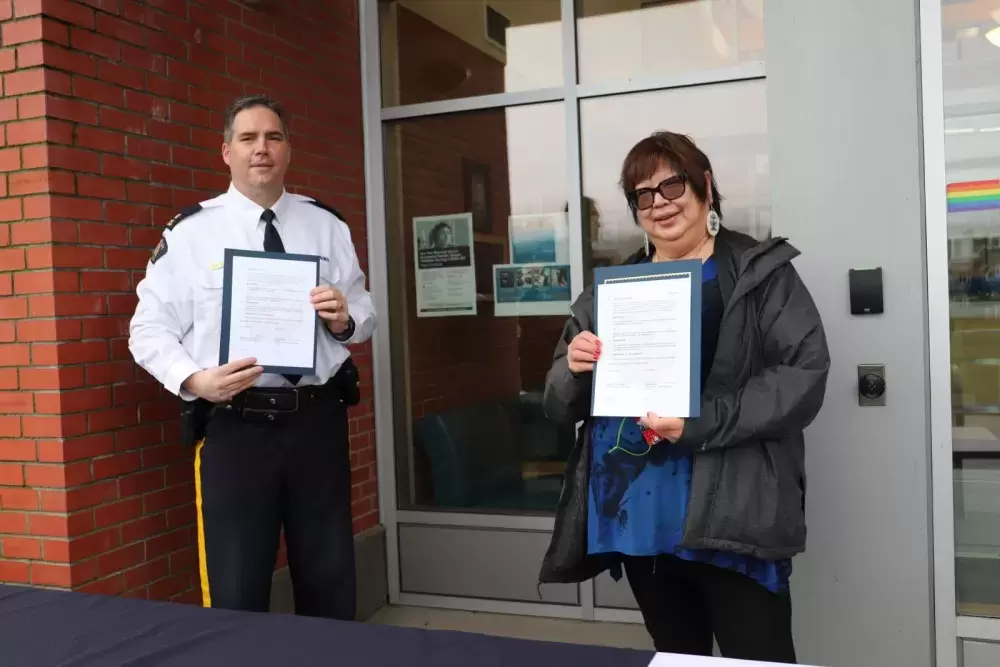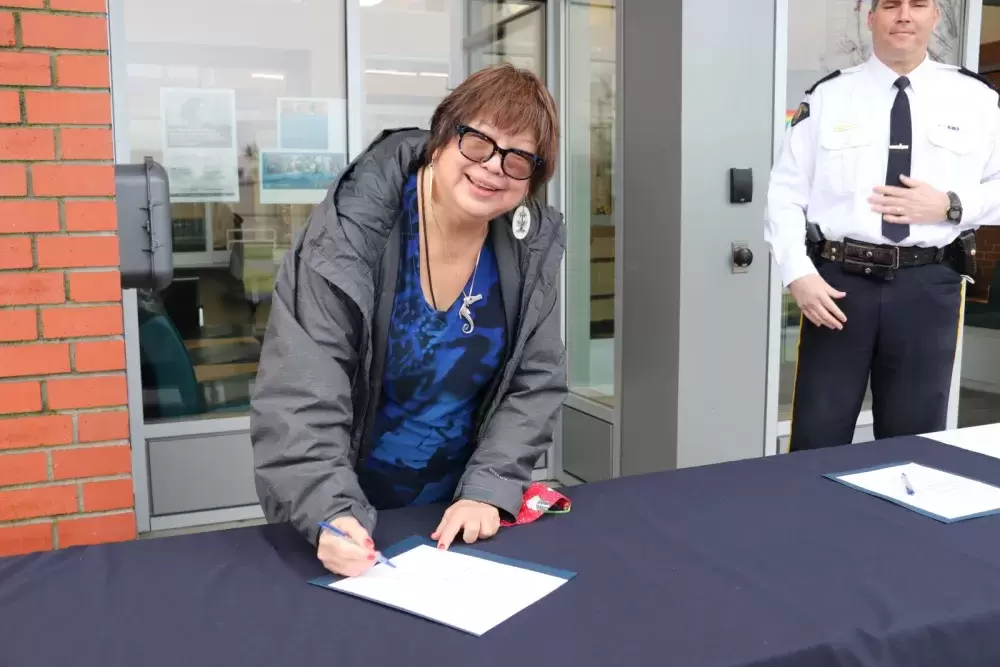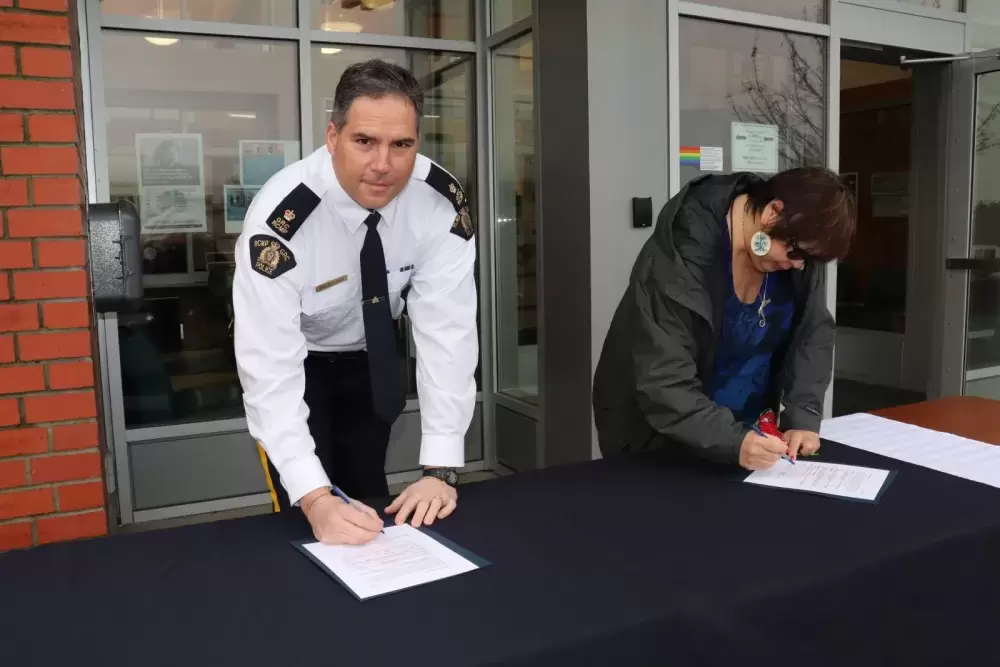As homelessness and addiction continues to be a problem that plagues Port Alberni, the Nuu-chah-nulth Tribal Council’s Teechuktl (Mental Health) department and the Port Alberni RCMP have pledged to work together to bring support to Nuu-chah-nulth people that have come into contact with police - but don’t necessarily belong in cells.
RCMP Corporal Jay Donahue of Indigenous Policing Services said the MOU signed Dec. 15 with NTC President Judith Sayers will allow the RCMP, with permission from the client, to directly refer them to workers in Teechuktl’s Quu’asa program, where they can access that extra level of support.
The NTC’s Teechuktl department provides mental health, cultural and traditional support to Nuu-chah-nulth people. Having access to culturally-sensitive supports could improve the health and well-being of the client.
“Some people are placed in cells for non-criminal matters…it may be mental health or addiction,” said Donahue.
By referring these people to Quu’asa, they have access to support and resources that are not available at the local RCMP detachment.
Sayers praised the Quu’asa team and the efforts of the RCMP.
“We have an awesome team that want to help our people and the police hopefully find better solutions – help people move forward in a good way,” she said.
In the MOU, called Referral Process Agreement, the RCMP acknowledge that they are not experts on cultural counselling and First Nations client care.
“The RCMP is committed to reducing the number of First Nations clients that are apprehended, involved in criminal activity or suffering with non-criminal mental wellness issues,” states the MOU.
The agreement allows the RCMP to refer First Nations clients, with their consent, to Teechuktl where they they will receive support. The goal, said Donahue, is to reduce rates of First Nations peoples’ interactions with police.
“This will bring them that extra level of after care,” he said.
Donahue noted that little support exists for people re-entering society from institutions.
“This is not a fix-all but it is a step in the right direction,” he added.



